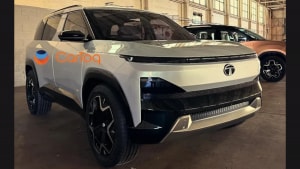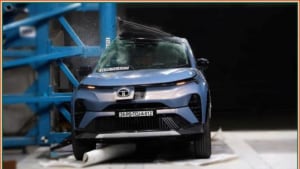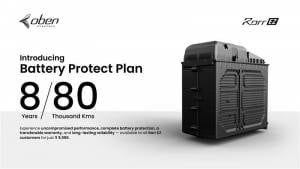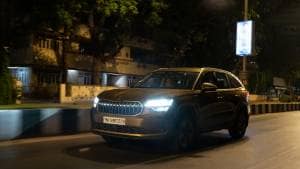Tata Motors announces Ziptron technology for electric vehicles
Tata Motors has taken yet another step towards strengthening its presence in the electric vehicle scene by announcing its new powertrain technology for EVs, called Ziptron. The technology has been in development for four years now and Tata Motors tells us it has had 350 engineers work on the program at its tech centres in India and the UK both. The technology has already been 'road tested' for over a million kilometres across various terrains, which clearly tells us the technology ready to hit the road. Tata Motors also announced it will launch the first electric vehicle to use the Ziptron technology in the last quarter of the current financial year, so one can expect Tata Motors to launch an all-new electric car early next year.
 Left to right: Anand Kulkarni, VP, Product Line, EVs, Tata Motors, Shailesh Chandra, President, Electric Mobility Business and Guenter Butschek, CEO and MD, Tata Motors at the launch of Tata Motors' new electric powetrain technology platform called Ziptron
Left to right: Anand Kulkarni, VP, Product Line, EVs, Tata Motors, Shailesh Chandra, President, Electric Mobility Business and Guenter Butschek, CEO and MD, Tata Motors at the launch of Tata Motors' new electric powetrain technology platform called Ziptron
Tata Motors has not revealed many details, but has confirmed that Ziptron has been developed keeping Indian conditions in mind and battery packs using the technology will offer a range of over 250km per charge. The battery packs will use lithium-ion cells and boast an IP67 rating, among the highest for dust protection and waterproofing and is what you find on most modern-day smartphones. The battery packs will be encased in high strength steel cases and will use liquid-cooling to optimise cooling, keeping typical Indian heat and summers in mind to avoid deterioration over prolonged use. Apart from the Altroz EV, Ziptron technology will also be used in other upcoming Tata Motors EVs like the Tiago electric and Nexon electric. Tata Motors also announced that it will offer an 8-year warranty on the batteries.
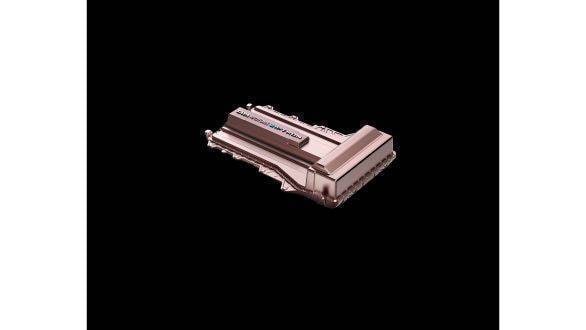 The battery packs developed as per the Ziptron technology program will have an IP67 rating, also seen on new-age smartphones and known as one of the highest dust and waterproofing standards for batteries
The battery packs developed as per the Ziptron technology program will have an IP67 rating, also seen on new-age smartphones and known as one of the highest dust and waterproofing standards for batteries
The focus of Ziptron technology will be on offering a driving experience that is far from boring and thus ensure the car is exciting to drive, sans the noise and pollution associated with internal combustion engined cars. More importantly, Tata Motors says Ziptron technology will ensure the EV powertrain will offer 90 percent efficiency, as compared to the 40 percent efficiency offered by IC engines. The battery pack will provide juice to 300 Volt permanent magnet synchronous motors and use a single-speed transmission for seamless power delivery and also offer the convenience of an automatic transmission. Electric cars using the Ziptron technology will feature different driving modes though, as is the case with Tata Motors' newer crop of internal-combustion engine powered cars and SUVs.
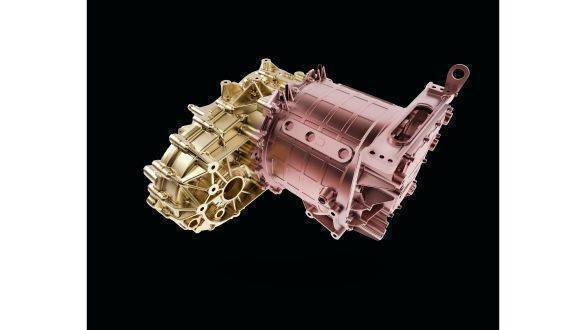 The battery packs will power permanent magnet synchronous motors and will use single speed transmissions
The battery packs will power permanent magnet synchronous motors and will use single speed transmissions
What's more, the cars will also feature connected technology, which means you will be able to access critical information about the vehicle and its batteries including range, charge status, vehicle location and more via a dedicated app. This is a trend that was seen first on recently launched cars like the Hyundai Venue, Kia Seltos and MG Hector. While Tata has not revealed the name or any particular details about the first car to use a Ziptron powertrain, the first product to sport the technology could be the fully-electric version of its upcoming premium hatchback, the Altroz. Tata Motors did mention it will reveal more details about the car in the coming weeks though. This is a trend the manufacturer started with the Harrier last year, when it provided us with a steady drip-feed of information about the SUV over a period of several weeks.
Starts Rs 7.53 Lakhs
1493cc
Manual
83
240
-NA-
Starts Rs 9.95 Lakhs
1497cc
Automatic
115
250
20.8 Kmpl
Starts Rs 12.9 Lakhs
1496cc
Manual
143
250
15.8 Kmpl
